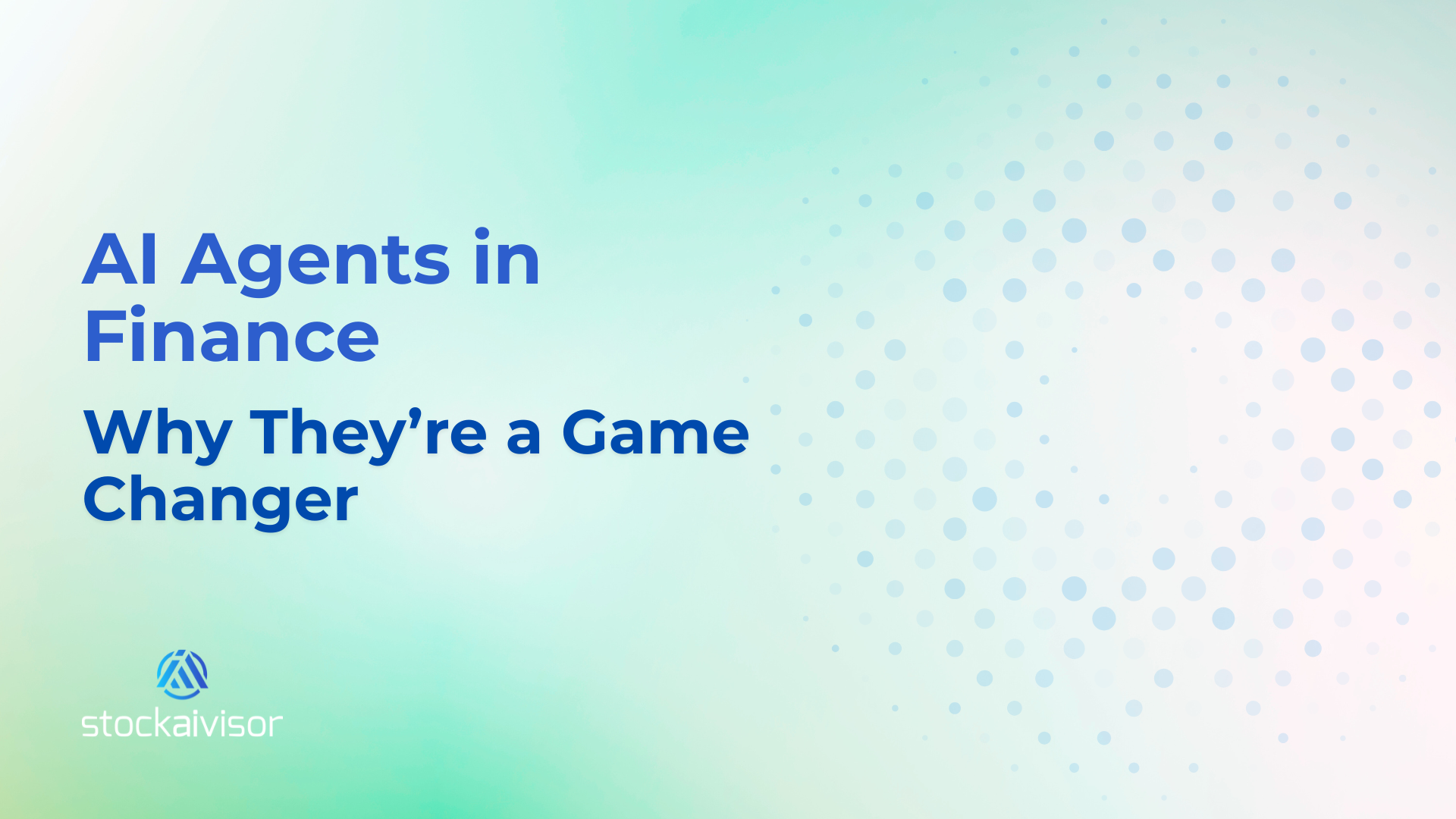
AI Agents in Finance: Why They’re a Game Changer
Artificial Intelligence is rapidly reshaping the landscape of the financial sector, but there is a new class of technology making headlines: AI agents. These intelligent, autonomous systems go far beyond basic automation and chatbots, revolutionizing how financial institutions operate, innovate, and serve customers. This blog explores what AI agents are, the best tools for building them, and why they are considered a true game changer in finance.
What Are AI Agents in Finance?
An AI agent is a software program or system that leverages advanced artificial intelligence techniques such as machine learning, natural language processing, and autonomous decision-making to perform complex tasks in a goal-directed, adaptive, and context-aware manner.
Unlike traditional rule-based bots, AI agents can:
Perceive their environment (e.g., market data, customer queries)
Reason and make decisions based on learned knowledge
Act autonomously, often executing multi-step workflows
Continuously learn and adapt from new data and feedback
In finance, AI agents are designed to handle a wide range of operations, from automated trading and risk managementto customer support, financial forecasting, and regulatory compliance.
As Bernard Marr notes in Forbes, “Forget ChatGPT—AI agents are the real game changer for financial services.”
Essential Tools for Building AI Agents
The growth of AI agents in finance owes much to a robust ecosystem of tools and frameworks. Here are some of the top tools and platforms that empower organizations to build effective AI agents:
1. LangChain
A popular open-source framework for building modular, composable AI agents. LangChain is ideal for creating agents that can chain together multiple actions—retrieving information, reasoning, and executing complex workflows—especially useful in financial services for integrating with APIs, knowledge bases, and market data streams.
2. OpenAI APIs
OpenAI’s GPT-4 and related APIs are at the core of many AI agents, providing powerful language understanding, reasoning, and natural language generation capabilities. These models enable agents to parse financial documents, answer customer queries, and generate reports.
3. Tredence Platform
Tredence offers industry-grade AI solutions for financial services, helping banks and insurers deploy agents for tasks like credit risk analysis, transaction monitoring, and compliance. Their AI agent solutions are tailored to work seamlessly with big data and existing financial systems.
Learn more at Tredence: AI Agents for Financial Services.
4. TextCortex
TextCortex specializes in AI content creation and automation. Their finance-focused agents can summarize research, automate document generation, and provide actionable insights from large volumes of data.
Discover how on TextCortex: AI Agent for Finance.
5. Corporate Finance Institute (CFI) Resources
CFI provides practical guidance on deploying AI agents for forecasting, risk management, and decision support in financial planning and analysis.
Explore more at CFI: AI Agents in Finance.
Why AI Agents Are a Game Changer in Finance
1. True Autonomy:
Unlike simple bots, AI agents autonomously handle multi-step processes—such as reading market data, executing trades, and updating compliance records—without constant human oversight.
2. Hyper-Personalization:
AI agents analyze vast datasets to provide tailored recommendations for clients, whether in wealth management, lending, or insurance underwriting.
3. 24/7 Operation:
AI agents never sleep, ensuring continuous monitoring of portfolios, risk, and compliance—even in global markets across time zones.
4. Rapid Adaptation:
AI agents learn from feedback and evolving environments, automatically adjusting strategies to respond to new regulations, market shifts, or emerging threats.
5. Scalable Efficiency:
With AI agents, financial institutions can scale services—like customer support or loan processing—without scaling costs, ensuring consistent quality at any volume.
6. Better Compliance & Transparency:
AI agents are built to document every action, making audits, reporting, and regulatory compliance more straightforward.
Real-World Use Cases of AI Agents in Finance
A. Automated Financial Forecasting
AI agents ingest and analyze real-time data—market trends, news, economic indicators—and generate accurate revenue, cost, and risk forecasts, helping financial planners make data-driven decisions.
B. Intelligent Trading Agents
Trading desks now use AI agents that autonomously execute trades, rebalance portfolios, and monitor risk—improving speed and consistency far beyond human capability.
C. Enhanced Customer Support
AI agents power next-gen chatbots that understand complex queries, access client histories, and deliver personalized answers instantly, leading to higher customer satisfaction and loyalty.
D. Risk & Compliance Monitoring
Agents can flag suspicious transactions, check adherence to evolving regulations, and maintain comprehensive audit trails for internal and external review.
E. Personalized Wealth Management
Wealth managers use AI agents to continuously adjust investment recommendations based on a client’s real-time financial goals and changing risk profile.
Challenges and Best Practices
While AI agents are transformative, successful adoption requires:
High-quality data:
Agents need clean, well-structured data for optimal results.
Strong governance:
Put controls in place to monitor agent decisions and prevent drift.
Continuous monitoring:
Regularly assess agent performance and retrain as needed.
Human oversight:
Keep experts in the loop for critical decisions and exception handling.
Conclusion
AI agents represent the next wave of digital transformation in finance combining intelligence, autonomy, and scalability. From real-time trading to risk management and customer engagement, these systems are redefining what’s possible in financial services. As tools and best practices mature, expect AI agents to become indispensable across every financial institution.
